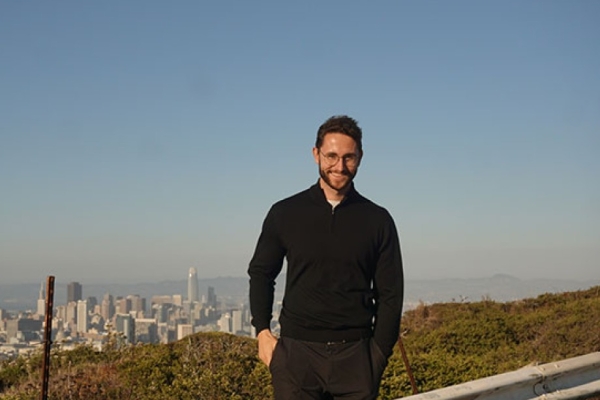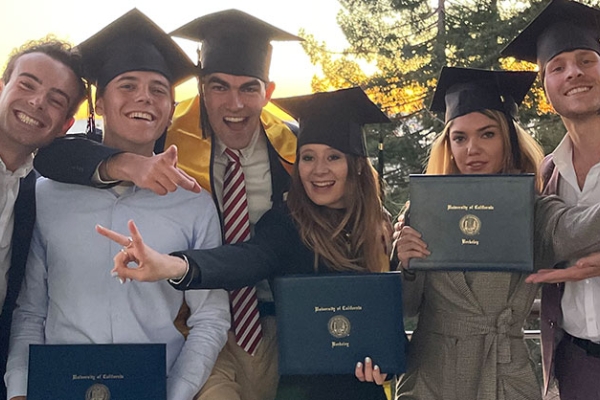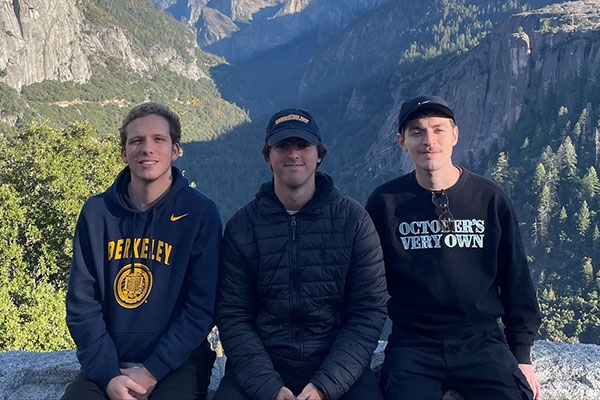Sally Clapper is passionate about empowering students to achieve their career goals. With years of experience in professional guidance, she specializes in preparing students for the competitive landscape of graduate school and the workforce.
As a participant in the Berkeley Global Access Program (BGA), you will have a unique opportunity to build a global network with students, faculty and industry experts from diverse backgrounds. Sally understands the value of this network and helps you to fully leverage it, whether by discovering job or research opportunities or in seeking letters of recommendation.
Sally's coaching approach is grounded in the belief that each student possesses unique strengths and talents that can be further developed and applied in a professional setting. Her coaching style is highly personalized, and she works closely with each student to gain self-awareness and clarity, build essential assets and practice skills necessary to set them up for success in their chosen field.
In Sally's classes, you won't just sit through lectures—you'll engage in hands-on coaching opportunities, participate in workshops, and hear from guest speakers and career panels. Come meet Sally and see how this course will take you to the next level.
Hear From Sally
Tell us about your career path.
My professional background was not a straight and narrow path—more of a zig-zag. However, the variety of my experiences allowed me to gain invaluable skills that now are key in my ability to help students navigate their next steps after university.
I started in education, where I had the opportunity to work with young adults who were transitioning out of the foster care system. I helped them navigate the complex process of getting into college, finding employment and developing essential life skills for independent living.
After that, I switched to marketing. During the past 25 years, I’ve honed my skills in marketing, branding and persuasive copywriting—all highly needed to launch startups, sell products and scale businesses.
However, my passion for education and helping young adults never waned, and I eventually decided to pivot my career to focus on helping students market themselves for success in today's competitive job market or graduate school applications.
“I want to apply for human-centered applications for my graduate program. Sally tells me how to make my CV, how to prepare all of my materials, including my recommendation letter. She instructed me and then helped me polish it. With her help, I'm much more confident with my application.”
—Jingyue Li, software engineering major at Northeastern University (China)
How do your previous career experiences play a role in your current position as a career development instructor for the BGA program?
My previous experiences play a critical role in my ability to effectively guide and mentor students. I have been able to bring in various specialties and skill sets that I gained over the years, such as persuasive psychology, learning and development practices, instructional design, marketing and analytics, and personal branding.
These skills culminate in my ability to create engaging and effective presentations for students, as well as offer valuable resources, strategies and encouragement that help them position themselves as top candidates when applying for jobs or graduate programs. By leveraging my diverse background and skillset, I am able to provide a comprehensive and tailored approach to helping students achieve their goals.
I'm so excited to be a part of this program now because I feel like I'm back home again. The happiest moments of my life have always been while I was teaching, and I am thrilled to have the opportunity to come back to my alma mater and teach such talented and ambitious students.
Why is this course beneficial to our students?
This course gives students invaluable information and resources they often do not find anywhere else. It’s like a fast-track to help them succeed both during and after the program. In the class, students gain skills and knowledge to be able to submit competitive applications for jobs or graduate school, as well as learn how to stand out from their peers in a crowded job market or coveted research program.
By learning how to effectively market themselves, build their personal brand and develop important interpersonal skills, students are then better equipped to navigate the challenges of the professional world for years to come.
Furthermore, students who don’t have access to this type of instruction and coaching often struggle to figure out their next steps or make important decisions about their career. While they may seek advice from professors or parents, it may not be at the same level of professional expertise and advice that our instructors can provide. In fact, our students consistently express their appreciation for the course and remark that they have not ever been exposed to this type of information elsewhere.
Additionally, the class provides a unique opportunity for students from different backgrounds and countries to interact and develop lasting friendships and professional relationships.
“One of my plans is applying for a Ph.D. here at UC Berkeley. Sally has helped me prepare all of the material to apply for a Ph.D. program and how to contact professors and other students. All the advice she gave me—preparing recommendation letters, my résumé and my LinkedIn profile—will help me a lot in my future.”
—Cesar Salcedo, computer science major at Universidad de Ingenieria y Tecnologia (Peru)
Give us an overview of your career development class.
My class covers all the essential aspects of career development, from gaining clarity on career goals to mastering the art of networking and interviewing.
To begin, I help students gain clarity on where they want to go and what they want to do, providing guidance on how to identify their strengths and interests, and then align those to careers or graduate programs that are the best fit for them.
Next, we focus on developing essential assets. For job seekers, that includes a well-crafted résumé, cover letter and LinkedIn profile. For graduate school applicants, that includes CVs, SOPs, and Personal or Diversity Statements. Students learn how to tailor these documents to showcase their unique skills and experiences.
Networking and interviewing are also critical components of the class. I share practical strategies and techniques to help students build professional networks, including how to connect with professors and alumni, attend job fairs and other networking events. Additionally, I coach students on how to effectively prepare for and perform in interviews.
Any outcomes from students that you can share?
Absolutely! Many students have shared that one of the most significant outcomes is that they gain a lot more confidence about what they need to do to secure internships, jobs or acceptance into graduate school.
One story I can share is about a young man who I was coaching who had switched from finance to software development. He had been searching for a software development position for over six months, submitting over 200 applications with no success—not even one offer for a first-round interview. After a few sessions and coaching, in only three to four months, he landed a job and was starting his new career.
The best outcomes are ones like this: It’s when students start seeing results on their own. They begin getting interview invitations, professors are willing to write recommendation letters, alumni and industry professionals are connecting with them—and then the offers start to come in. This is incredibly rewarding to witness.
And when students start sharing their success stories with their peers, it creates a ripple effect of inspiration and motivation. That is truly the highlight of the semester.
“After the program, I'm either going to graduate school in Europe or in the U.S., or I'll start a job. This course really helped me to get my documents ready for applications. Also, now that I'm interviewing for different roles, it really helped me to get that right, especially in the U.S.-specific context.”
—Janik Sauerbier, business informatics major at University of Mannheim (Germany)
What steps do you take to get to know your students better?
I start out trying to build trust with them. When they first come to class, they're usually pretty shy. But from the get-go, we do activities in class and then start having one-on-one coaching sessions. The minute they have a coaching session with me and see my personality and genuine interest in helping them to succeed, they start to relax.
I really get to see their fun side and also the depth of their intelligence and ambition. Trust starts to happen. They know I'm in their corner, I've got their backs, that I’m rooting for them.
What can a student expect during a one-on-one session?
The coaching sessions are really helpful to get individualized feedback and advice. Students will come in, and say, “I want to get into these programs. Here are the statements I have to write and specific questions I need to answer. Here are the professors that I am reaching out to. Can you help me make sure that this is really polished?”
Each coaching session is individualized. Each student has their own particular goal. The real point of a coaching session is you get to receive professional, individualized help exactly where you need it in order for you to move forward.
I'm so glad to be a part of the Berkeley Global Access Program and be able to teach these young, bright individuals.



